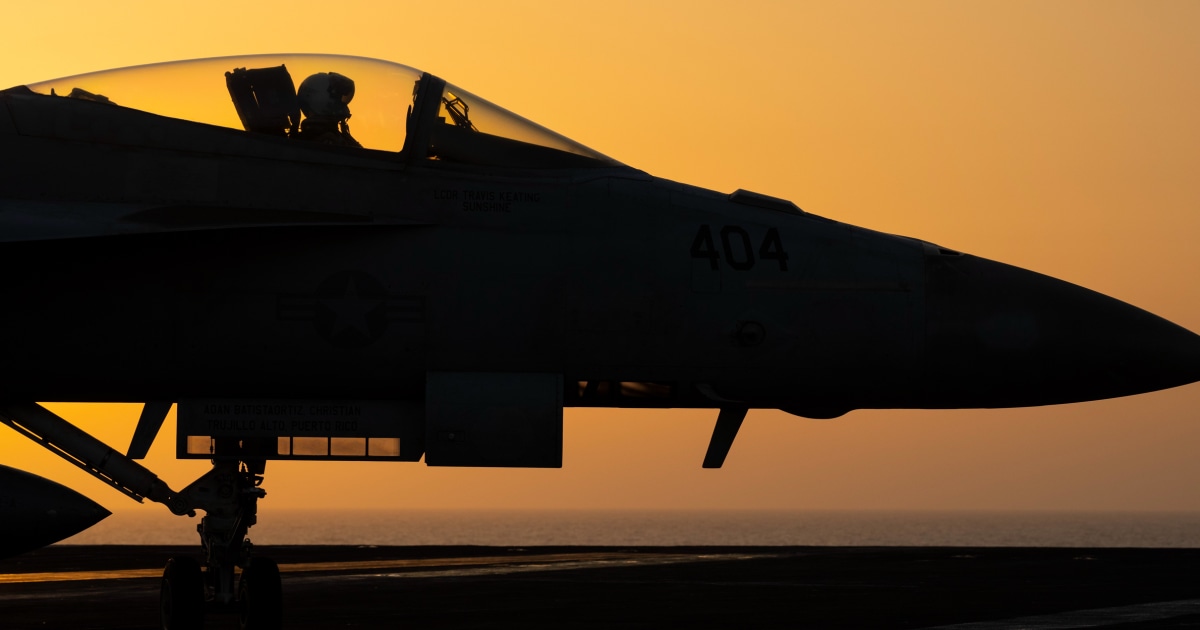World
Hamas leader Yahya Sinwar not hiding in Rafah, US tells Israel

Joe Biden indicated last week that Israel would be crossing a red line by invading Rafah as he halted some arms shipments to Israel. It is not clear if IDF operations there have already crossed that red line.
In an overnight call with Antony Blinken, the US Secretary of State, Yoav Gallant, Israel’s defence minister, described his country’s mission in Rafah as a “precise operation against remaining Hamas battalions”.
Mr Blinken reiterated Washington’s opposition to a major offensive in the southern city.
Israeli tanks ‘cross key Rafah highway’
On Monday, heavy fighting was reported in the eastern edge of Rafah. Israeli tanks and infantry reportedly crossed a key highway on the outskirts of the city.
And in a sign of escalating fighting in the area, the IDF on Monday morning reported 50 soldiers injured in 24 hours, a high number for Israeli operations during this war.
At least 360,000 Palestinians have fled Rafah since the IDF issued evacuation orders last Monday, according to the UN’s agency for Palestinian refugees.
The Hamas-controlled health ministry in Gaza said on Monday the local health system was “hours away” from collapse as the key crossing used for aid deliveries remained shut.
Egypt warns of Rafah invasion ‘risks’
On Monday afternoon, the Egyptian foreign minister warned Mr Blinken of “grave security risks” entailed by Israel’s manoeuvres in Rafah, which borders his country. Sameh Shoukry also stressed the need to resume aid deliveries as soon as possible.
Earlier on Monday, an unnamed Egyptian official told the Associated Press the Egyptians have been privately warning Israel that the Rafah operation would put into jeopardy the Egyptian-Israeli peace treaty, a cornerstone of regional security.
Mr Shoukry has publicly denied any intention on the part of Egypt to pull out of the treaty.
There was also heavy fighting on Monday in the once-densely populated Jabaliya neighbourhood of Gaza City, an area the Israeli Defence Forces (IDF) had captured at the end of last year.
Israeli tanks, backed by air and artillery cover, tried to advance deep into Jabaliya as local residents told Reuters of tank shells landing in the centre of the area. Paramedics responded to reports of deaths and injuries.
Israeli forces pushed locals to evacuate from six UN-funded schools in Jabaliya towards the west of the neighbourhood, according to Al Jazeera.
Protests at Memorial Day events in Israel
Also on Monday, Israel marked Memorial Day, a sombre occasion commemorating fallen soldiers, which is even more poignant this year with fresh memories of the October 7 attack and 132 hostages still in Hamas captivity.
At Israel’s main commemoration ceremony at Jerusalem’s Western Wall on Sunday night, Herzl Halevi, the IDF chief of staff, assumed responsibility for security failures on October 7, saying he “feels the weight on my shoulders every day”.
In Jerusalem on Monday morning, one protester stood and held up a poster saying “7/10”, referring to the day of the massacre as Prime Minister Benjamin Netanyahu took the stage at the main Memorial Day event to commemorate the dead and promise that the government is “working non-stop to bring everyone back”.
‘He took my kids!’
In videos from the ceremony on Mount Herzl, one person can be heard yelling “trash” and another man shouts: “He took my kids!”
At other memorial events, Israelis took their anger out on the country’s hard-Right politicians, accusing them of betraying the hostages at the expense of the war in Gaza.
When Itamar Ben-Gvir, the National Security Minister, arrived at the military cemetery in the southern city of Ashdod, mourners shouted: “Get out of here, criminal! Trash, you haven’t been in the army for a minute!” Police had put up security barriers and fences to prevent altercations.
In Ofakim, where Hamas fighters were on rampage for almost 24 hours on October 7, the mother of hostage Matan Zangauker confronted Bezalel Smotrich, Israel’s finance minister, outside the military cemetery, asking him to put the hostages first – those “who are still alive, who can still be saved”.










